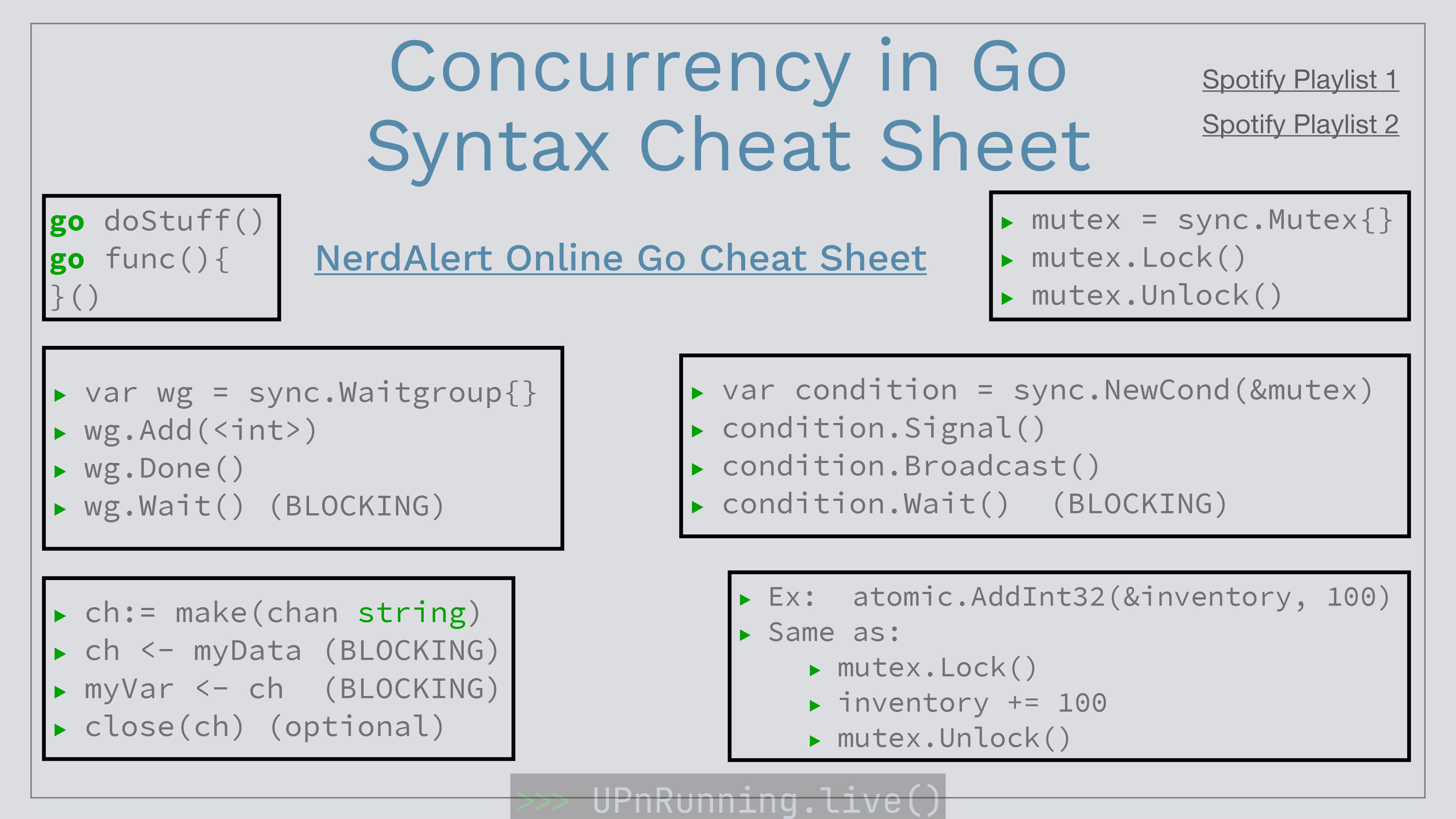Resume for concurrency in golang
Explore the docs »
Concurrency in Go allows you to run multiple tasks at the same time, which improves the performance and scalability of your applications. It is a powerful tool, but also complex, and requires a good understanding to use it correctly. Keywords:
- go: Creates a new goroutine.
- func: Defines a function.
- make(chan T): Creates a channel of type T.
- chan T: Defines a channel of type T.
- <-chan T: Receives a value from the channel T.
- chan<-T: Sends a value to the channel T.
- WaitGroup: Synchronizes the completion of goroutines.
- Mutex: Protects access to shared data.
- Sync.Cond: Synchronizes access to shared data with conditions.
- Atomic: Atomic operations on variables.
Goroutines are functions that run in parallel. They are lightweight and efficient, making them ideal for tasks that do not need to block resources for a long time.
func main() {
// Creates a new goroutine
go func() {
fmt.Println("Hello from a go routine")
}()
// Waits for the goroutine to finish
fmt.Println("Waiting...")
time.Sleep(1 * time.Second)
fmt.Println("Done!")
}Channels are a way of communication between goroutines. They allow you to send and receive data safely and efficiently.
make(chan T): Creates a channel of type T.chan T: Defines a channel of type T.<-chan T: Receives a value from the channel T.chan<-T: Sends a value to the channel T.
func main() {
// Creates a channel of integers
canal := make(chan int)
// Creates a goroutine that sends a value to the channel
go func() {
canal <- 10
}()
// Receives the value from the channel
valor := <-canal
fmt.Println("The value received is", valor)
}WaitGroup is a tool to synchronize the completion of goroutines. It is used to wait for all goroutines in a group to finish before continuing.
WaitGroup: Synchronizes the completion of goroutines.wg.Add(n): Increments the WaitGroup counter by n.wg.Done(): Decrements the WaitGroup counter by 1.wg.Wait(): Waits for the WaitGroup counter to reach 0. Example:
func main() {
// Creates a WaitGroup
var wg WaitGroup
// Creates two goroutines that increment the WaitGroup counter
for i := 0; i < 2; i++ {
go func() {
wg.Add(1)
fmt.Println("Goroutine", i, "started")
time.Sleep(1 * time.Second)
fmt.Println("Goroutine", i, "finished")
wg.Done()
}()
}
// Waits for the goroutines to finish
wg.Wait()
fmt.Println("All goroutines have finished!")
}Mutex is a type of lock that protects access to shared data. It is used to prevent two goroutines from modifying the same data at the same time, which can cause errors.
Keywords:
Mutex: Protects access to shared data.mutex.Lock(): Locks the mutex.mutex.Unlock(): Unlocks the mutex. Example:
func main() {
// Creates a mutex
var mutex Mutex
// Creates two goroutines that increment a shared variable
for i := 0; i < 2; i++ {
go func() {
mutex.Lock()
fmt.Println("Goroutine", i, "started")
counter++
fmt.Println("Goroutine", i, "finished")
mutex.Unlock()
}()
}
// Waits for the goroutines to finish
time.Sleep(2 * time.Second)
fmt.Println("The